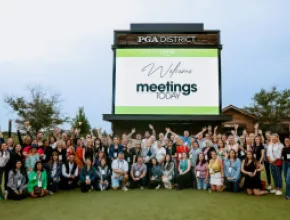Sensory brand experiences—encompassing everything from events, tradeshows and sponsorships to virtual or augmented reality experiences and cutting-edge pop-ups—are increasingly being emphasized and invested in by brand managers and event planners, according to a new survey by Freeman and SSI.
As marketers see the positive results from these experiences at face-to-face events they expect to increase spend in this area to get closer to customers, build loyalty and remain top of mind in purchase decisions.
For the study, “Brand Experience: A New Era in Marketing,” Freeman polled nearly 1,000 marketing professionals across North America, Asia and Western Europe, in roles focused on both B-to-B and B-to-C segments, confirming that brand experience is more central to business today than it was in the past.
The survey found that audiences are seeking more personalized interactions with brands, and more than nine out of 10 respondents agreed that brand experiences deliver more compelling brand engagements.
“The role of brand experience continues to increase in scope and importance, as audience expectations evolve,” said Chris Cavanaugh, Executive VP & CMO at Freeman. “Steep competition, changing demographics and more sophisticated audiences mean now, more than ever, marketers need new approaches.
"The right brand experiences have the power to evolve brands, build relationships and inspire action. Our new research helps us understand brand experience as a medium of the future.”
Across the board, more than two-thirds of survey respondents agreed that brand experience is an effective way to reach their organizations’ goals. Key findings from the research include:
- By and large, marketers feel brand experience is great for building loyalty, with 59 percent of chief marketing officers (CMOs) recognizing brand experience for its ability to create ongoing relationships with key audiences.
- As marketers realize the value of brand experiences, they are shifting spend, with more than one in three CMOs expecting to allocate 21-50 percent of their budget to brand experience marketing over the next three to five years.
- Marketers believe in customizing experiences to create stronger connections, yet they may not be moving fast enough. Currently, the top three tactics they are using to drive brand experience are standard: website (58 percent), social media (57 percent) and email marketing (51 percent). Companies involved in more than 20 events per year are taking greater advantage of these tools, which include touch screens, location mapping, virtual reality, and gamification.
- In Asia especially, marketers appear to be early adopters of more immersive, interactive technologies, with 42 percent tapping into sensory interaction as a way to personalize brand experience, compared to 28 percent in North America and 13 percent in Western Europe.
- Brand experience is growing across all sectors, yet when looking at marketing roles within an organization, there is a disconnect, providing an opportunity for greater alignment. For example, 48 percent of CMOs value brand experience for its ability to showcase thought leadership, yet that number drops to 33 percent among brand managers and 28 percent among event planners.
The full report, “Brand Experience: A New Era in Marketing,” is available for free download.





